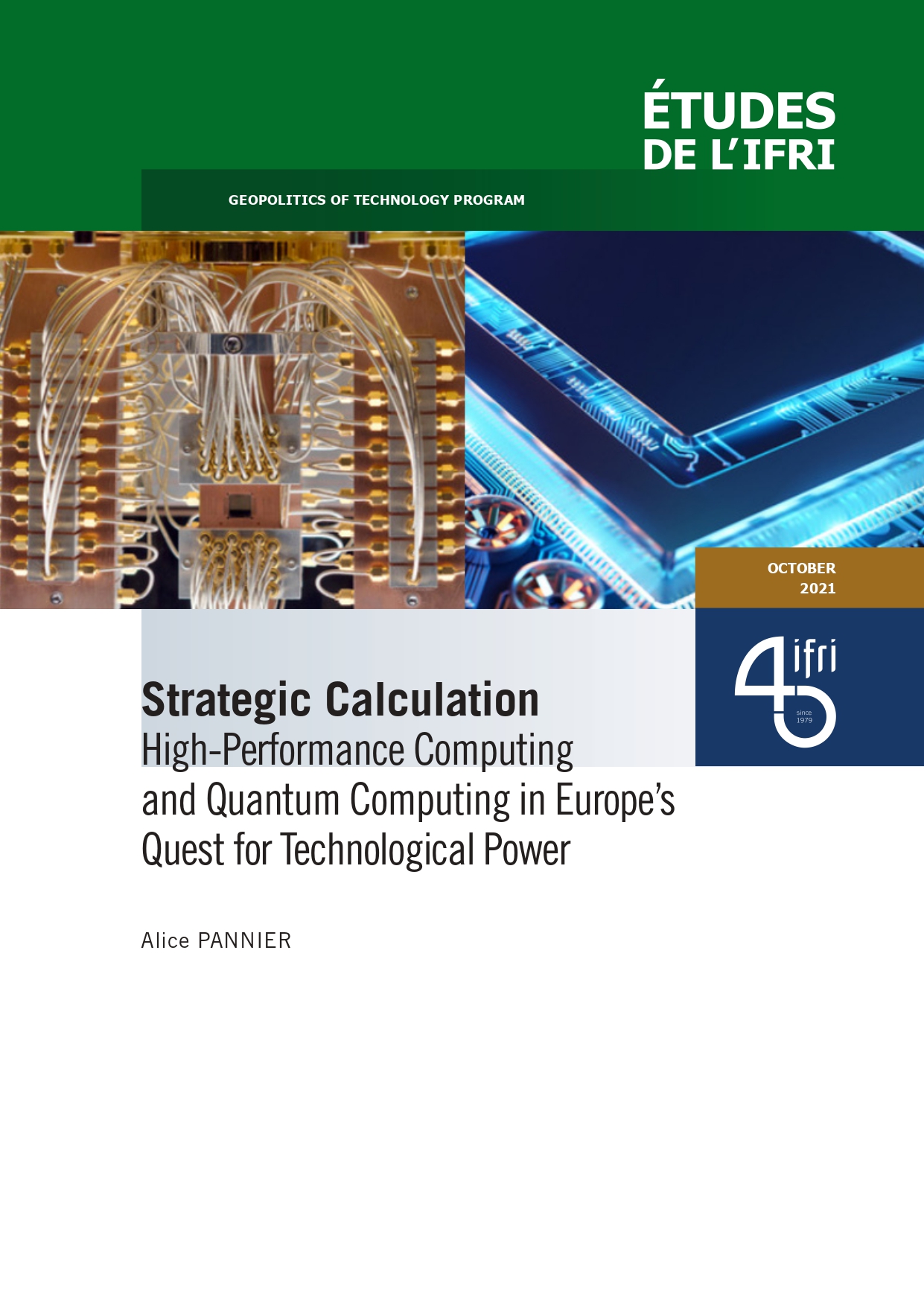Strategic Calculation: High-Performance Computing and Quantum Computing in Europe’s Quest for Technological Power

Computing power plays a key role in enabling machine learning, for scientific research, and in the military domain. Therefore, the race for computing power has become a key element of the US-China technological competition, and it is also a strategic priority for Europe.

This study focuses on two complementary segments of computing: high-performance computing (HPC, also known as “supercomputing”), and quantum computing. HPC has for several decades been used in scientific research, meteorology, and the military. While states continue to drive the needs for massive computers, the field is also witnessing a diversification of uses in industry. Meanwhile, quantum computing is still at an experimental stage but has highly disruptive potential, as it promises to multiply computing power exponentially. As such, it has become a focal point for government, industry, and investors around the globe.
In the global race, European countries are seeking to pool resources by encouraging the development of federated computing services, data infrastructures, and a local industry. Of course, Europe faces multiple challenges (the design and production of processors, energy consumption constraints, and scarce private investment) and risks (such as export restrictions and company takeovers). Yet, today, quantum computing does offer an opportunity to learn lessons from past developments in the field of classical computing, and to take the right actions early on, to reap the societal, economic and security benefits of this technology.

Available in:
Regions and themes
ISBN / ISSN
Share
Download the full analysis
This page contains only a summary of our work. If you would like to have access to all the information from our research on the subject, you can download the full version in PDF format.
Strategic Calculation: High-Performance Computing and Quantum Computing in Europe’s Quest for Technological Power
Related centers and programs
Discover our other research centers and programsFind out more
Discover all our analysesRegulatory Dynamics and Tensions in the Space Sector: Towards and Americanization of Space Law?
The development of space law has gradually evolved from a top-down normative dynamic dominated by the founding impetus of the UN to a bottom-up normativity driven by national and industrial practices. This evolution is now accompanied by growing normative competition, raising the risk of an Americanization of space law and prompting the question of a European response.
The Sustainability of Space Operations: An Opportunity for European Leadership?
As space becomes a key arena for power projection strategies, while facing growth and diversification of orbital activities, the concept of “space sustainability” is emerging as a new framework of analysis for space governance.
The “Huawei Saga” in Europe Revisited: German Lessons for the Rollout of 6G
While the European Union attempted to coordinate a collective response through its 5G Toolbox in Europe’s 5G infrastructure, member states diverged significantly in balancing political, economic, and technological considerations. Germany, despite its economic ties to China and status as Europe’s largest telecom market, only reached a tentative agreement in July 2024—one that appears largely symbolic.
European Startups and Generative AI: Overcoming Big Tech Dominance
Europe is at a crossroads. Faced with the domination of American Big Tech across the entire generative Artificial Intelligence (AI) value chain, from foundation models to cloud infrastructure, distribution channels, and open source, it risks long-term technological and economic decline. Yet generative AI also represents a major opportunity for economic transformation, with a potential value estimated at 1.5 times France’s gross domestic product (GDP). To turn it into a driver of renewal, Europe must move beyond the illusion of total technological independence and instead build an ecosystem that leverages Big Tech resources while strengthening its own innovation capabilities.












